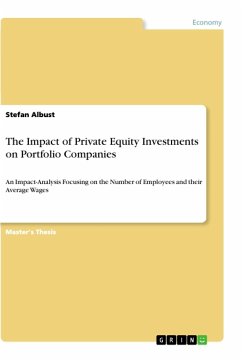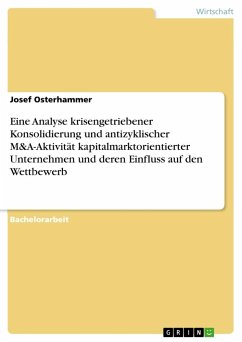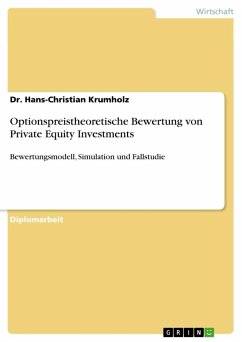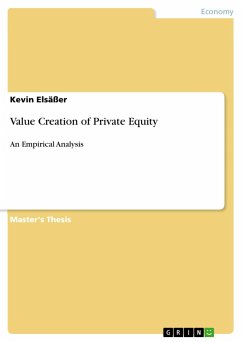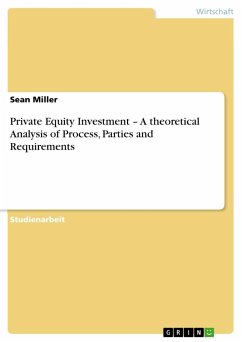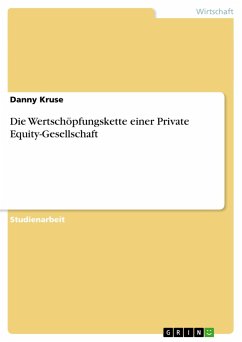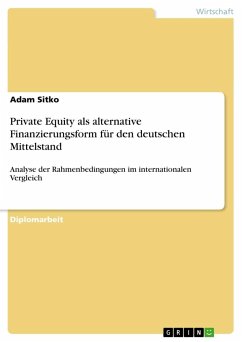Master's Thesis from the year 2019 in the subject Business economics - Investment and Finance, grade: 1,2, Durham University, language: English, abstract: This dissertation takes up the private equity topic and analyzes its impact on the employees of the portfolio companies. As there has been no detailed research done so far on the German market, this paper focuses on the impact on German companies which were taken over by a private equity house. It is assumed that the investment of a private equity company leads to an increase in the number of employees (H1) as well as their average wages (H2). These hypotheses are based on the performed literature review which shows a rather diverse picture with a slight trend towards the advantages of private equity investments.The private equity industry is growing and therefore its importance is increasing as well. However, the reputation of private equity investors is not always positive and some harmful examples confirm this picture in the broader market. The negative history subsequently led to an increasing regulatory environment. Nevertheless, private equity financing has also many advantages for the portfolio companies such as the solution of succession concerns, additional equity financing and added external know-how.By analyzing five private equity owned companies from different industries in Germany and benchmarking them against their local main competitor as well as testing the results against their statistical significance, interesting results appear. On the one hand, H1 needs to be rejected as in 60% of the analyzed companies the number of staff decreased after the investment of a private equity company. On the other hand, H2 can be confirmed as the average wages of the remaining employees increased in 80% of the observed companies and also evolved better compared to their non-private equity backed peers. Additionally, this dissertation shows that the second year after the takeover (T+2) is rater special and requires further investigation. Due to limitations of this research paper, it is recommended to use all the identified results for a more detailed analysis on the reasons of the observations.

